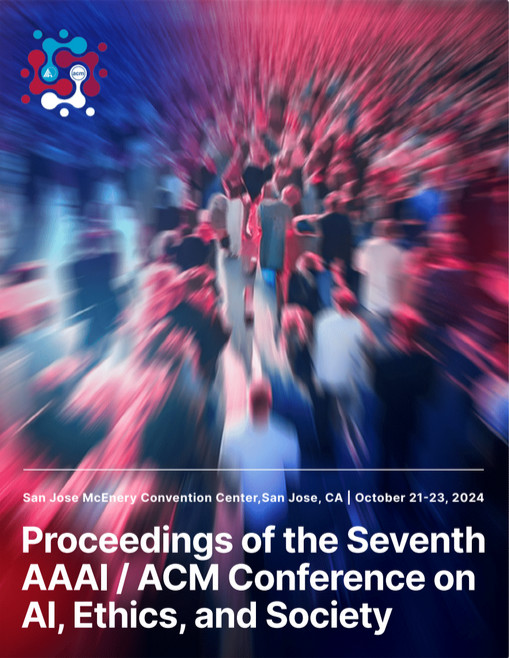Social Scoring Systems for Behavioral Regulation: An Experiment on the Role of Transparency in Determining Perceptions and Behaviors
DOI:
https://doi.org/10.1609/aies.v7i1.31690Abstract
Recent developments in artificial intelligence research have advanced the spread of automated decision-making (ADM) systems used for regulating human behaviors. In this context, prior work has focused on the determinants of human trust in and the legitimacy of ADM systems, e.g., when used for decision support. However, studies assessing people's perceptions of ADM systems used for behavioral regulation, as well as the effect on behaviors and the overall impact on human communities are largely absent. In this paper, we experimentally investigate people's behavioral adaptations to, and their perceptions of an institutionalized decision-making system, which resembled a social scoring system. Using social scores as incentives, the system aimed at ensuring mutual fair treatment between members of experimental communities. We explore how the provision of transparency affected people’s perceptions, behaviors, as well as the well-being of the communities. While a non-transparent scoring system led to disparate impacts both within as well as across communities, transparency helped people develop trust in each other, create wealth, and enabled them to benefit from the system in a more uniform manner. A transparent system was perceived as more effective, procedurally just, and legitimate, and led people to rely more strongly on the system. However, transparency also made people strongly discipline those with a low score. This suggests that social scoring systems that precisely disclose past behaviors may also impose significant discriminatory consequences on individuals deemed non-compliant.Downloads
Published
2024-10-16
How to Cite
Loefflad, C., Chen, M., & Grossklags, J. (2024). Social Scoring Systems for Behavioral Regulation: An Experiment on the Role of Transparency in Determining Perceptions and Behaviors. Proceedings of the AAAI/ACM Conference on AI, Ethics, and Society, 7(1), 891-904. https://doi.org/10.1609/aies.v7i1.31690
Issue
Section
Full Archival Papers

